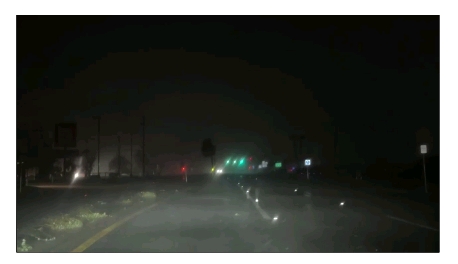
Hurricane Helene’s Violent Winds Trigger Transformer Explosion in St. Pete Beach, Florida, Sparking Power Outages and Fire Hazards; Emergency Crews Mobilize to Mitigate Damage
Hurricane Helene’s Violent Winds Trigger Transformer Explosion in St. Pete Beach, Florida, Sparking Power Outages and Fire Hazards; Emergency Crews Mobilize to Mitigate Damage
St. Pete Beach, FL — As Hurricane Helene continued its destructive path across Florida, the serene beach town of St. Pete Beach became the latest victim of the storm’s fierce winds, which have now caused significant damage to local infrastructure. Early reports confirm that powerful gusts of wind from the hurricane toppled electrical poles and triggered the explosion of a transformer in the heart of the community, leading to widespread power outages and creating potentially dangerous fire hazards. Emergency response teams were dispatched immediately to assess the damage, contain any threats, and work toward restoring essential services to the affected area.
The Devastating Power of Hurricane Helene
Hurricane Helene, currently a Category 4 storm with sustained winds surpassing 140 mph, has wreaked havoc as it makes its way along the Gulf Coast. Its fury has already led to extensive flooding, damage to buildings, and destruction of vital infrastructure across several regions in Florida. St. Pete Beach, located on a barrier island on the west coast of the state, experienced the brunt of the storm’s power late last night when fierce winds caused a transformer at a critical junction to explode, plunging several neighborhoods into darkness.
The St. Pete Beach Fire Department reported that they received numerous emergency calls almost immediately after the explosion, with residents describing a loud, thunderous noise followed by visible sparks and thick clouds of smoke billowing from the transformer. Fortunately, no injuries have been reported so far, but the power outage has left many homes and businesses vulnerable, while the risk of fires remains a significant concern.
Extent of Damage and Fire Hazard Concerns
The explosion not only knocked out power for thousands of residents but also sparked immediate fears of fire hazards, as debris from the transformer scattered across nearby streets. Utility poles, already weakened by the force of the hurricane, collapsed as well, leaving live electrical wires exposed and increasing the possibility of ignition in the event of further downed lines or contact with flammable materials.
Given the ongoing threat of high winds and torrential rain, emergency officials are urging residents to remain indoors and avoid any downed power lines, as they could still be live and highly dangerous. Florida Power & Light (FPL) crews have been dispatched to secure the site and restore power, but utility officials warned that repairs could take several hours, if not days, given the magnitude of the storm and the number of other outages across the region.
Chief Frank Fernandez of the St. Pete Beach Fire Department stated, “Our primary concern at this point is to secure the area around the transformer and ensure that no further incidents occur. We are monitoring the situation closely, and we ask residents to be patient as emergency crews work to restore normalcy. Our top priority is keeping the community safe.”
Impact on Residents and Local Businesses
For the residents of St. Pete Beach, the transformer explosion and subsequent power outage have added a new layer of anxiety as they brace for what could be a prolonged period without electricity. With power down, many homes have lost access to air conditioning, lighting, and refrigeration, exacerbating the challenges faced by those already struggling to cope with the relentless hurricane.
Local businesses, particularly those reliant on refrigeration like restaurants and grocery stores, have also been severely impacted. Many are scrambling to preserve perishable goods, while others have been forced to close their doors temporarily, further contributing to the sense of uncertainty hanging over the community.
“It’s really tough,” said Maria Gomez, owner of a popular beachfront restaurant. “We were already dealing with a drop in customers because of the storm warnings, and now this explosion has left us in the dark—literally. We’re just trying to keep everyone safe and make sure we don’t lose all our stock in the process.”
In addition to the immediate consequences of the power outage, concerns are growing about how prolonged outages could affect the health and safety of residents, particularly the elderly and those with medical conditions who rely on electrical devices for essential care. The city has activated its emergency response protocols, setting up shelters and providing resources for those in need of assistance during this critical period.
Emergency Response and Restoration Efforts
St. Pete Beach’s local government, in coordination with state and federal agencies, has launched an extensive emergency response effort to address the aftermath of the transformer explosion and the ongoing effects of Hurricane Helene. The city has deployed additional police, fire, and medical personnel to ensure public safety and assist those affected by the blackout.
The Federal Emergency Management Agency (FEMA) has also been notified, and federal resources may soon be allocated to help with cleanup and recovery once the storm passes. In the meantime, Florida Power & Light (FPL) is working around the clock to assess the extent of damage to the electrical grid and to prioritize the restoration of power to critical services, including hospitals, emergency shelters, and nursing homes.
John Peters, a spokesman for FPL, noted that while crews are on the ground and making every effort to restore power as quickly as possible, the scale of the damage may delay repairs. “We are dealing with a very dynamic and dangerous situation, with multiple downed lines, transformer damage, and extreme weather conditions. Our crews are working in incredibly challenging conditions, but our goal is to restore power as safely and efficiently as possible.”
Community Response and Preparedness
Despite the disruption caused by Hurricane Helene and the transformer explosion, the residents of St. Pete Beach have demonstrated resilience and solidarity in the face of adversity. Many neighbors have banded together to offer assistance to those in need, sharing generators, food, and other resources.
Local shelters, including the Gulf Beaches Historical Museum and St. Alban’s Episcopal Church, have opened their doors to provide refuge for those displaced by the storm or without access to power. Volunteers are assisting in the distribution of essential supplies, while local emergency personnel are conducting wellness checks to ensure that vulnerable residents, such as the elderly and disabled, are safe.
Dr. Linda Adams, a local resident and head of the city’s volunteer emergency response team, emphasized the importance of preparedness in such situations. “We’ve been through hurricanes before, and we know that having a plan in place is crucial. Even with the unexpected, like this transformer explosion, the community has come together, and we’re doing everything we can to support one another.”
City officials have also issued reminders for residents to stay informed through local radio stations, emergency alerts, and social media channels, as the situation remains fluid. With the possibility of further outages and damage as the storm continues its path, maintaining clear lines of communication is essential for keeping the community safe.
Looking Ahead: Long-Term Recovery
While immediate recovery efforts are focused on containing the fire hazards and restoring power, there is growing concern about the long-term impact of Hurricane Helene on St. Pete Beach and the surrounding areas. As a popular tourist destination, the town depends heavily on its local economy, which thrives during the peak travel seasons. Prolonged damage to infrastructure, power grids, and businesses could significantly delay the return of normal activity, impacting both the local economy and livelihoods of residents.
Officials are already discussing plans for post-storm recovery, with the potential need for federal assistance to rebuild critical infrastructure and support those who have been displaced or otherwise affected by the hurricane. Mayor Terri Finnerty has called for a special emergency meeting to address the immediate needs of the community and to begin planning for the recovery process once the storm passes.
“We are committed to ensuring that St. Pete Beach comes out of this stronger,” Mayor Finnerty said. “This has been a difficult time for our residents, but we are resilient, and we will rebuild together. Our priority now is to take care of our people, restore power, and ensure that everyone remains safe. Once the storm clears, we will focus on getting our community back on its feet.”
State and National Response to Hurricane Helene
Across the state of Florida, Hurricane Helene has prompted widespread evacuations and triggered a state of emergency. Governor Ron DeSantis has activated the Florida National Guard to assist with emergency response efforts, particularly in coastal communities like St. Pete Beach, where the risk of storm surge and flooding remains high.
The National Hurricane Center has issued storm surge warnings for much of Florida’s Gulf Coast, including St. Pete Beach, warning of life-threatening conditions in low-lying areas. Forecasters predict that the storm will continue to bring heavy rains, high winds, and the possibility of tornadoes as it moves inland.
In Washington, D.C., President Biden has been briefed on the situation and has pledged federal support for Florida’s recovery efforts. “Our thoughts are with the people of Florida as they face this dangerous storm,” Biden said in a statement. “We stand ready to assist with whatever resources are necessary to ensure the safety and well-being of Floridians in the aftermath of Hurricane Helene.”
How You Can Help
As recovery efforts get underway, many organizations are stepping up to provide aid to those affected by Hurricane Helene. The American Red Cross, local food banks, and disaster relief organizations are coordinating efforts to provide shelter, food, and medical care to those in need.
Residents and others who wish to help are encouraged to donate to local and national relief organizations, volunteer at shelters, or provide essential items to those displaced by the storm. Volunteers are especially needed to assist with cleanup efforts and to provide support at shelters.



